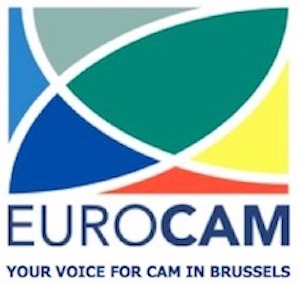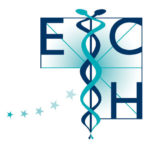COVID-19 and Integrative Medicine & Health - the role of the Immune system
Prevention
A novel coronavirus named Severe Acute Respiratory Syndrome Coronavirus-2 (SARS-CoV-2) can cause infectious COVID-19 disease. It was first identified in December 2019 in Wuhan, China, and has since spread globally, resulting in an ongoing pandemic.
COVID-19 symptoms differ in severity, there are people who have no symptoms up to those with fever, cough, sore throat, general weakness, and fatigue and muscular pain. In very serious cases, severe pneumonia, acute respiratory distress syndrome, sepsis and septic shock occur, all potentially leading to death. The latest information can be found on the website of the European Centre for Disease and Prevention (ECDC) and the national public health authorities.
The World Health Organization (WHO) said it did not expect a vaccine against the virus, to become available in less than 18 months. But that doesn't mean we have to sit still until then. The scientific literature shows us that there is a lot of evidence that lifestyle interventions can contribute to improved resistance against viral infections and a reduced risk of a serious course of disease.
As every relevant medical textbook explains, infection is always the result of two factors: exposure to an infective agent and the person’s immune and defence system. This also applies to the SARS-CoV-2 virus.
Pathological viruses and bacteria take root as a disease when the person’s immune and defence system is weakened and susceptible to them. It is true that anyone can get exposed and infected with a pathological virus/bacterium, but only relatively few people get seriously ill, a smaller number get complications, and a yet even smaller number of people die.
When it comes to a person’s ability to repel invaders, basic requirements to keep the immune system strong include quality sleep, regular exercise, healthy food, and relaxation practice. This will help reduce the risk of acquiring the virus or reduce the severity or duration of an infection.
Adequate sleep
Good and sufficient sleep is essential for a well-functioning immune system. According to various studies, recovery of good sleep behaviour contributes to a restoration of immune function.
Stress management
Psychological stress disrupts immune regulation. Relaxation activities, such as mindfulness meditation, exercise and breathing techniques, aimed at the removal/regulation of chronic stress contribute to the recovery of the disturbed systems and thus also contribute to improved resistance.
Healthy diet
Nutritional deficiencies make people more susceptible to viruses and bacteria, that’s why it is important to eat nutritional foods that maintain a healthy immune system. This includes eating a diet rich in fruits and vegetables, which contain vitamins and antioxidants to promote good health.
Physical activity
Regular physical activity helps better maintain the way the immune system works and is associated with decreased mortality and incidence rates for infections.
References are available from the secretariat.
Note: These recommendations are intended to augment (not replace) public health measures of handwashing, physical distancing, and seeking testing/medical care should someone become sick.
Treatment
CAM modalities as part of Integrative Medicine & Health can play a role
In building and maintaining resistance to infectious illness, CAM modalities as a part of Integrative Medicine & Health can play an important role because they mobilise and stimulate people’s self-regulating capacity, thus increasing their resilience, their immune system. Greater resilience leads to a swift and sustained recovery from infections and reduced susceptibility to future infections.
EUROCAM follows the latest developments
From the very start of the COVID-19 pandemic, EUROCAM and its affiliated organisations are closely following the latest developments and research studies on the treatment of COVID-19 patients. EUROCAM and its partners are collaborating on European and global level to collect, analyse and exchange cases of COVID-19 patients who have been successfully treated by specific CAM modalities. All EUROCAM's affiliated members and associated partners can be found here.
More information about COVID-19 and CAM
More and updated information can be found on the website of our affiliated organisations. By clicking on a logo, you will be redirected to the organisation concerned. The input of other affiliated organisations will follow soon.



